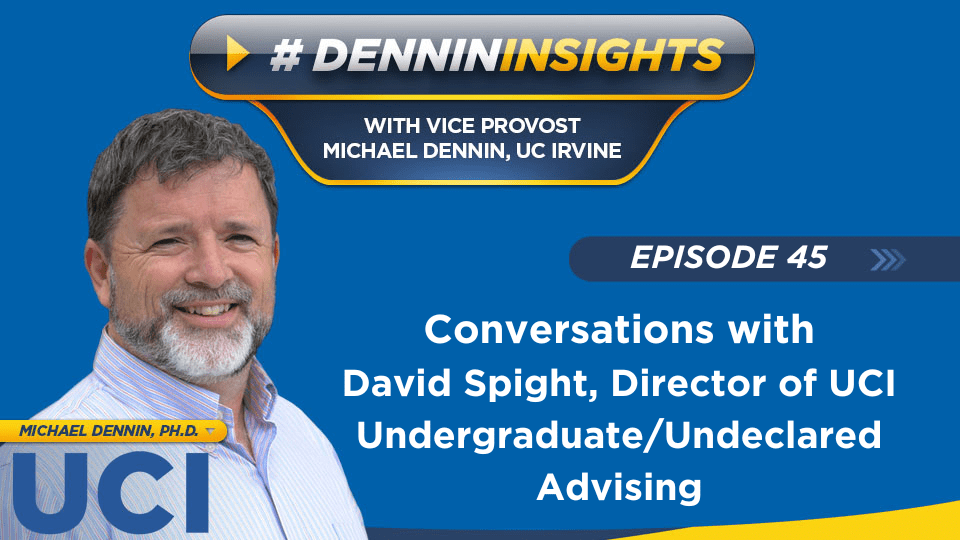In a previous post of my Dennin Insights blog, I discussed the value of general education (GE) courses and how they are designed to expose students to different academic disciplines and potential areas of study. This topic came up again during a recent conversation with David Spight, Director of UCI Undergraduate/Undeclared Advising Program. When talking about the student perception of GE requirements, David offered some really insightful points regarding the value of GE courses and student academic exploration in general.
He first pointed out that different academic disciplines adopt different problem-solving frameworks. For instance, a humanist will have a very different way of looking at a problem than a mathematician would. David explained that taking GE courses offers students a way to explore the different ways that disciplines approach problem-solving and helps them decide which framework or lens they’d like to pursue. He also had a great quote on how GEs play an important role in helping students learn about themselves and what they want to do in the future:
“The reason for GEs is not to make [students] well-rounded—although that’s definitely a part of what we believe in. It’s to help them understand the human and social context of challenges and the things they want to do to address these challenges once they leave college.”
Helping students learn about themselves is at the heart of academic advising and what David does at the Undergraduate/Undeclared Advising Office. While many students specifically seek out academic counselors or advisors during course enrollment periods, being an advisor goes far beyond helping students plan their schedules. According to David, advising starts by helping students figure out who they want to be, what they want to do, and what they need to do to get there. It’s only once they have this understanding that advisors can help choose classes and determine the pathway to success.
David’s comments really reinforce what I’ve come to believe after 24 years of working as a professor and Vice Provost at UCI—that the university experience should be designed to offer flexibility for student exploration and success. Just as David helps students explore their options and develop their plans for navigating our institution, we also need to ensure that these different pathways to success are possible. It’s only when we incorporate flexibility into our courses and university infrastructure that we can foster a truly inclusive and equitable system that supports the success of all students.
Check out our full discussion in a recent episode of my podcast Conversations with the Vice Provost here.

Очень интересная статья о создании индивидуальных проектов!
Я давно интересуюсь эта тема,
и приятно видеть, что есть компании,
которые относятся к своей работе так
ответственно. Меня заинтересовал индивидуальный подход
Stroyplans к каждому проекту.
Думаю, это важнейший аспект в создании идеального дома.
Кстати, на днях наткнулся на их сайт StroyPlans,
там есть много интересных примеров проектов.
Рекомендую заглянуть всем, кто размышляет о проектировании собственного дома.
Спасибо за такой подробный обзор!
Thank you.
Translation:
A very interesting article about creating individual projects!
I have been interested in this topic for a long time,
and it’s nice to see that there are companies
who treat their work this way
responsibly. I’m interested in an individual approach
Stroyplans for every project.
I think this is the most important aspect in creating the perfect home.